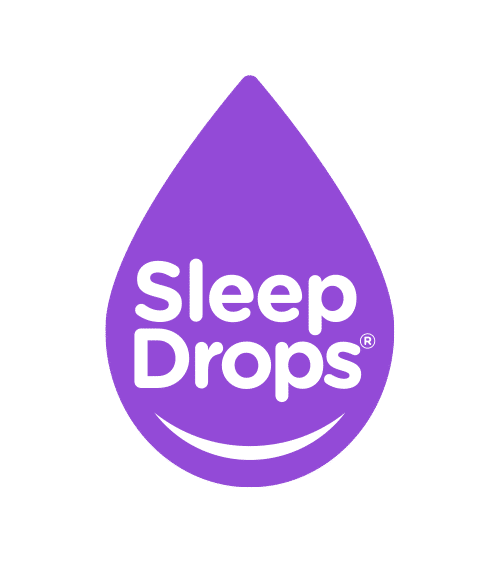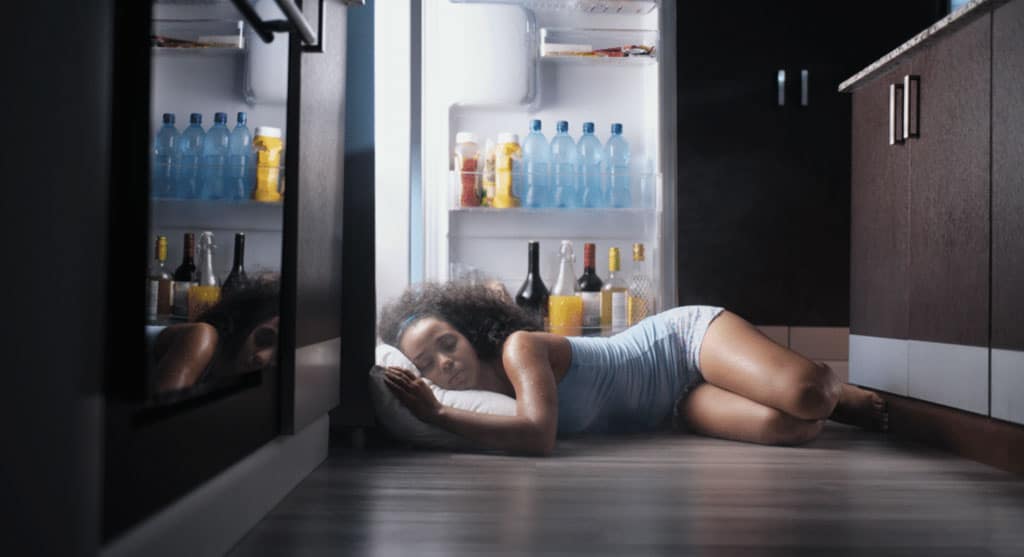Summer has landed and although there is so much to love about this season, it can seriously disrupt our sleep! Not only do longer, lighter evenings mean we are later to bed but we often wake through the night in a hot mess.
How Summer Disrupts Your Sleep
During the summer months, we tend to stay up later to make the most of the weather. This confuses our natural body clock known as our circadian rhythm which has a preference for routine and we find it difficult to go to sleep at our usual time. This phenomenon is called a ‘delayed sleep phase’ or ‘social jet lag’ and is something that can affect us all year round – but more so in summer.
Longer sunlight hours also delays the secretion of Melatonin, our main sleep hormone that is released in darkness to help us fall asleep and stay asleep. This means we feel sleepy later than normal encouraging us to stay up later and further disrupting our sleep patterns. We also often wake earlier in response to lighter mornings adding to our fatigue.
The Summer heat and humidity during the day can be exhausting enough let alone when you are sleep deprived. To help you and your family beat the heat and sleep through Summer, the SleepDrops Research team have put together the following tips:
Behavioural Strategies to Beat the Heat this Summer:
TAKE A COLD SHOWER
A cool shower or bath before bed an hour before bed (if you can handle it!) can cause a drop in body temperature to induce sleepiness. If you need to ease yourself into it, start with a normal temperature bath or shower and then run the cold water at the end for 30 seconds. You can then slowly build this up so you have cold water exposure for at least two minutes. Another option is to use a wet towel or herbal towelettes to cool off.
DRINK COLD WATER
With the summer heat and more time outside, it’s easy to get dehydrated. Even a small drop in 3% of our bodies’ water levels can cause dehydration symptoms such as headaches, muscle cramps and a dry mouth which can keep you awake at night.
It’s important to stay hydrated through the day by drinking at least 30mls of healthy pure water for every kg of body weight per day. E.g. 70 kg person = 2100mls. A great guide to checking your hydration status is to use the colour of your urine. If you are adequately hydrated this will be a pale-yellow colour. A darker yellow colour indicates you are dehydrated and you’ll need to drink more water.
At night, drinking a little cold water before you go to sleep may also bring down your body temperature, you can also keep a glass of water by your bed with ice in it to cool you down if you wake in the night overheating.
AVOID SUNBURN
There’s nothing worse than your sleep being disrupted by sore skin that is still burning from a day in the sun. It’s important to avoid sunburn by applying 30+ zinc-based waterproof sunscreen every two hours, covering up or seeking shade. If you do get burnt, try cooling aloe vera on your skin before bed to refresh and soothe your sunburn.
CONSIDER YOUR NUTRITION
When we digest any food, our body temperature goes up and heat is emitted from our body in a process called dietary thermogenesis. To keep your body temperature down before bed, eat nutritious dinners rich in easily digestible foods such as salads, cooked vegetables and fruit to help the body generate less heat. It’s also a good idea to eat at least two hours before bedtime to give your body time to cool down. Keep the house temperature down by cooking on the outdoor BBQ. Avoid alcoholic beverages, as they increase body temperature and disrupt sleep patterns.
TAKE MAGNESIUM
Many of us are deficient in Magnesium as this essential nutrient is rapidly used by the body to help your body regulate body temperature, stay healthy, mediate stress and achieve deep, restorative sleep by relaxing the nervous system. Foods such as almonds, cashews and peanut butter on toast are a good source of magnesium and may just make the perfect snack before bed for those prone to hunger in the night! As it is difficult to get adequate Magnesium from diet alone, we recommend taking a high-quality supplement such as our Essential Sleep and Stress Nutrients providing the recommended daily intake of 400mg of Magnesium.
GET A CHECK-UP
If you find yourself sweating at night it could be a sign of a health problem. Menopause, anxiety, gastroesophageal reflux disease (GERD), obesity, hyperthyroidism, sleep apnoea, insomnia and other conditions can all cause night sweats. Talk to your doctor to rule out any unknown medical causes.
ADJUST YOUR MEDS
Night sweats are often a side effect of drugs to treat:
- Depression
- Diabetes
- Cancer (hormone therapy)
Talk to your doctor if you are on medication to treat the conditions above as they may be able to adjust your prescription for a cooler night’s sleep. This could include adjusting the drug, dosage or time of day you take your meds to reduce night sweats.
Environmental Strategies to Beat the Heat this Summer:
LOWER YOUR ROOM TEMPERATURE
The optimal temperature for a cool sleep is 16-21 degrees Celsius so if you are finding it too hot to sleep, it’s a good idea to lower your bedroom temperature. A bedroom that’s too humid can also affect your sleep quality, so aim for 40% to 60% humidity and invest in a dehumidifier if needed.
SWITCH LIGHT BULBS
Switching to LED light bulbs will make your room cooler but will lower your energy bills too. An incandescent light bulb gives off 90% of its energy as heat, not light. Where-as (LED) lights put out 90% of the energy it uses as light. If you do use incandescent bulbs, turn them off well before bedtime for a cooler room.
GET SOME AIR FLOWING
Open all the doors and windows in your house to keep air circulating and turn on a fan to create a cross-flow of air. Try not to have the fan aimed directly at people, as this can cause a chill. If it is breezy outside, use fans to accelerate and direct that breeze throughout your house.
BLOCK THE SUN
Block out curtains, or an eye mask is your best defence against early sunrises, which will prevent you from sleeping in. Keep curtains and blinds closed to keep warm air out while trapping cool air inside. Studies show that medium-coloured drapes, with white plastic backings, can keep rooms 33% cooler than other colours.
COOLER BEDDING
Using the right bedding can make all the difference to your sleep:
- Pillows – Pillows that have natural fibres are a better option for hot sleepers
- Sheets – Cotton or linen sheets help soak up sweat to keep you cool
Try putting your bedsheets and pillowcases inside a plastic bag in the freezer for a few minutes, providing cool relief to bring your body temperature down and help you drift off to sleep.
FREEZE YOUR SHEETS
Try putting your bedsheets and pillowcases inside a plastic bag in the freezer for a few minutes, providing cool relief as you drift off to sleep.
COOLER SLEEPWEAR
Research shows that wearing cooler fabrics, such as cotton or even lightweight wool, can help you sleep better in hot weather. Stick with lightweight summer sleepwear in natural fibres.
CONSIDER A NEW MATTRESS
If you are especially hot in summer try switching to a firmer mattress, so you don’t sink down into your mattress and get hotter.
As always if you need further advice to support your sleep or think your sweating could be a sign of a more serious health problem, call our friendly Naturopathic Doctor on 0800 345 888 or book online here for a thorough assessment of your sleep, health and wellbeing.
Source: The SleepDrops Research Team
References:
https://www.ncbi.nlm.nih.gov/pmc/articles/PMC3427038/
https://www.webmd.com/sleep-disorders/what-happens-body-during-sleep#1
https://www.sleepapnea.org/40-tips-for-sleeping-during-a-heat-wave-when-you-dont-have-ac/
https://lifehacker.com/this-graphic-shows-you-how-to-stay-cool-while-you-sleep-1718246417
https://sciencing.com/many-hours-daylight-summer-8196183.html
https://www.forbes.com/sites/brianbrettschneider/2018/06/14/summer-solstice-daylight/#14d12aad22b4
https://www.researchgate.net/publication/13492227_How_Significant_is_Magnesium_in_Thermoregulation


